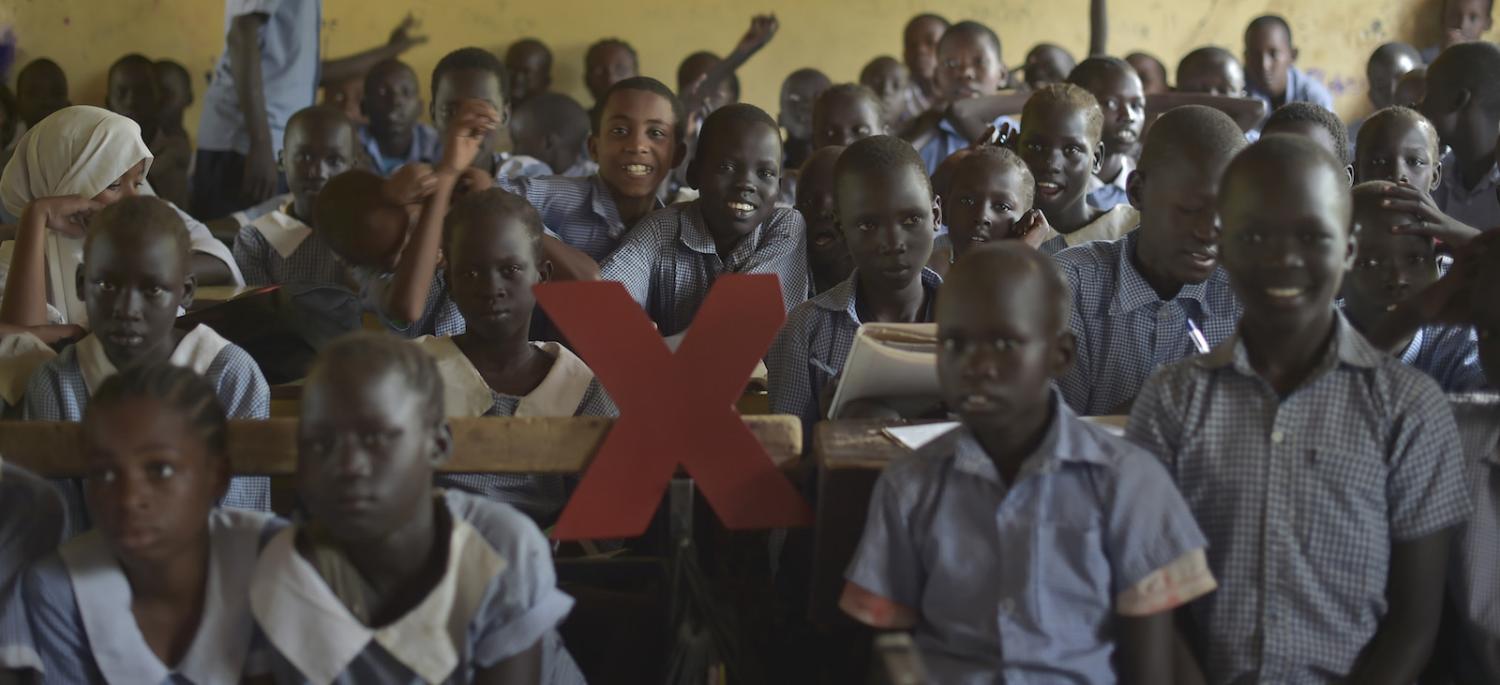This article is based on episodes 2 and 3 of the Good Will Hunters podcast, with Professor Paul James, former Director of UN Cities, and Beth Eggleston, Co-Founder and Director of the Humanitarian Advisory Group.
On 9 June, the first TEDx event to be held in a refugee camp took place in Kakuma Camp, Kenya.
TedxKakumaCamp, as it is now known, was organised in large part by the United Nations High Commission on Refugees (UNHCR). Critics of the event immediately admonished it as a PR stunt on the part of UNHCR that failed to acknowledge the harsh realities of life in Kakuma Camp, including the 2016 decision made by the Kenyan Government to close it down due to increased political and racial tensions
A few weeks ago, I spoke with Beth Eggleston, Director of the Humanitarian Advisory Group, on perceptions of entrepreneurship in refugee camps. Just before our discussion, the International Finance Corporation of the World Bank had declared that the same camp which hosted the TEDx event to be “open for business”.
A report compiled by the World Bank found that the Kakuma Refugee Camp had an economy valued at US$56 million per year. The World Bank attributed this in part to the entrepreneurship of the individuals residing in the camp, many of whom had built profitable businesses since seeking refuge in Kakuma.
Eggleston noted that people in need are very entrepreneurial, and this should not come as a shock. We, in the West, are guilty of sometimes perceiving those experiencing a humanitarian struggle to be passively awaiting our help, rather than as capable of addressing their own needs through whatever means they have.
Entrepreneurship in Kakuma is likely to bear resemblance to entrepreneurship in camps the world over. What is new, however, is recognition of this entrepreneurship by multilateral banks and a subsequent push for greater private sector investment in these seemingly profitable arenas.
No amount of entrepreneurship gives you safe passage into a new country.
Many of the speakers at TedxKakumaCamp spoke of their own entrepreneurship. Their stories were unquestionably inspiring.
However, what concerned me was overuse of the word “resilience” on the part of the UNHCR representatives. Like many buzzwords that have come before it, resilience is increasingly being used as a signifier of self-empowerment, and I fear it’s also being used to erase the responsibility of governments and other institutions at the macro level.
A few weeks ago I recorded episode 2 of the Good Will Hunters podcast with Paul James, former director of UN Cities. We discussed how resilience is increasingly being used as an excuse for inaction in the development sector. When we paint individuals as resilient, we falsely believe that they are equipped to empower themselves out of poverty.
If a person is resilient and empowered, then what effect do macro-level political and economic factors really have on them? As it turns out, the effect remains and will always remain significant.
While refugee camps are sites of entrepreneurship, and the individuals residing in them are capable of developing profitable businesses, the fact remains that they are living in a refugee camp because they have fled some form of political unrest. Political unrest is the result of a breakdown in some form of cooperation, and we cannot erase that from the refugee narrative through stories of self-empowerment and resilience.
Had the Kenyan government followed through on its 2016 threats to close down the Kakuma Camp, along with others, due to ongoing racial tensions in the country, it still would leave a question where the 180,000 refugees in the camp would have gone. Refugee camps such as Kakuma are firmly situated in a particular political and economic context, and it is important that we do not allow stories of resilience to disentangle this political context from its micro-level realities. Resiliency among refugees must not be used as a justification for political inaction.
I am firmly in favour of creating platforms which allow people to tell their own stories. This is always the preferred option over telling peoples’ stories on their behalf, and TedxKakumaCamp has succeeded in this regard.
However, while it is evident that entrepreunership has flourished in many parts of Kakuma Camp, we cannot naively believe that this is the whole story, and instead must recognise the macro-level failures that led to this point. Private-sector investment in refugee camps may enable entrepreneurship to grow, and so long as the corporations involved do so with social responsibility and sustainability at the forefront of their operations, I am supportive of it.
We can be supportive of entrepreneurship, and economic growth in refugee camps, while still acknowledging that the capacity for refugees to demonstrate resiliency and empowerment does not extinguish responsibility on the part of governments to correct the macro-level environment which necessitated these camps in the first place – because no amount of entrepreneurship gives you safe passage into a new country.

